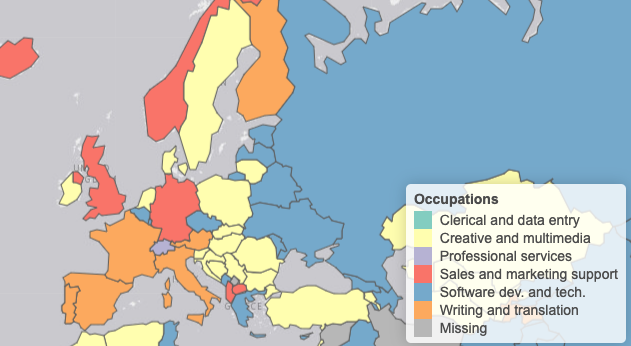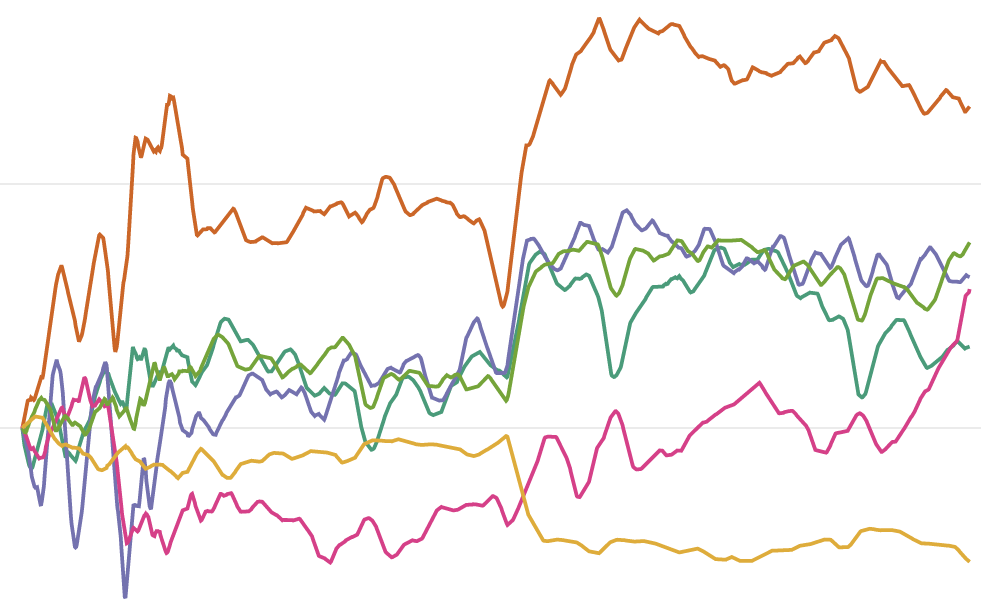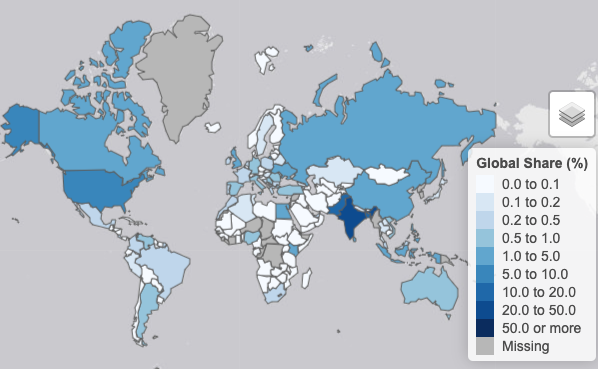Explore Online Labour Markets with
the Online Labour Observatory

The map shows the most popular online labour occupations in Europe. In Latin Europe the leading online work category is writing and translation, while North Europe provides creative and multimedia work as well as sales and marketing support. Large East European countries are strongest in software development and technology, which is consistent with the fact that they are also significant destinations for traditional technology outsourcing. The map is based on the Online Labour Index, a system that tracks the utilisation of online work across countries and occupations in near real-time.
Explore occupationsThe Online Labour Index

The Online Labour Index (OLI) is the first economic indicator that provides an online gig economy equivalent of conventional labour market statistics. It measures the supply and demand of online freelance labour across countries and occupations by tracking the number of projects and tasks across platforms in real time. Its 2020 update (OLI 2020) introduces wider coverage, new interactive visualizations, and easy access to data.
Explore the OLIResearch
Decoding the Online Labour Index (2016–2024)
The Online Labour Index (OLI), a pioneering effort to track the dynamics of the online global freelance labour market, offered valuable insights from 2016 to 2024. By capturing real-time data[…]
Read moreHas ChatGPT affected online labour demand?
There has been a lot of discussion about how large language models (LLMs) such as ChatGPT are changing the world of work. Data on online labour demand offers a glimpse[…]
Read moreIs tech ‘taking over’? How the online workforce shifts towards tech work
By Susanne Klausing and Fabian Stephany In 2021, we released the Online Labour Index 2020 (OLI 2020) which allows for new forms of analyses regarding the development of online platform[…]
Read moreThe Online Labour Index 2020
The Online Labour Index (OLI) is the first economic indicator that provides an online gig economy equivalent of conventional labour market statistics. It measures the supply and demand of online freelance labour across countries and occupations by tracking the number of projects and tasks across platforms in real time. Its 2020 update (OLI 2020) introduces wider coverage, new interactive visualizations, and easy access to data.
Explore the OLI 2020







